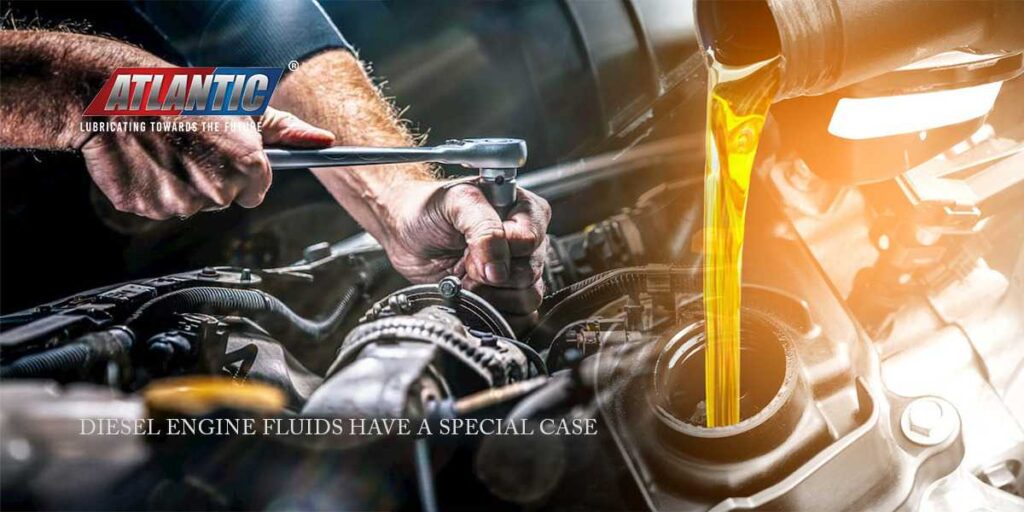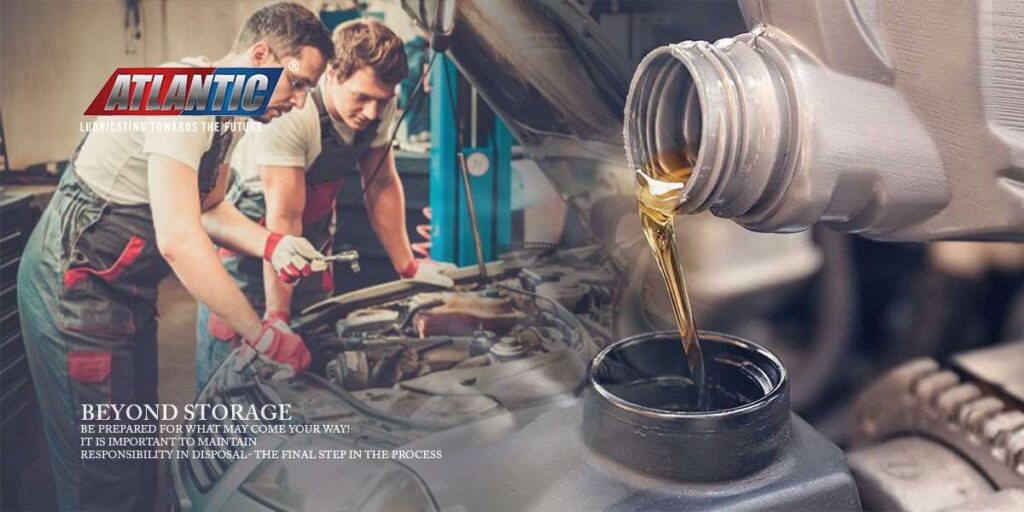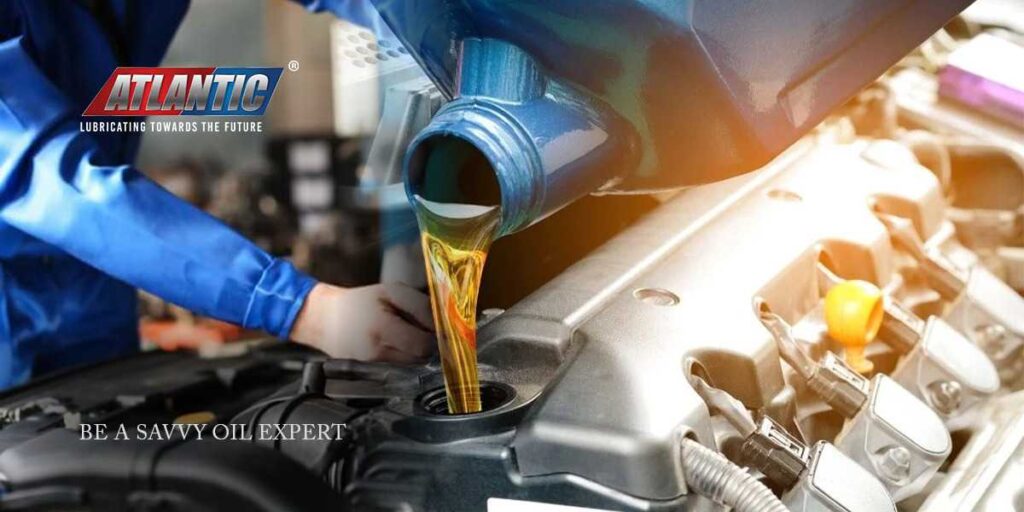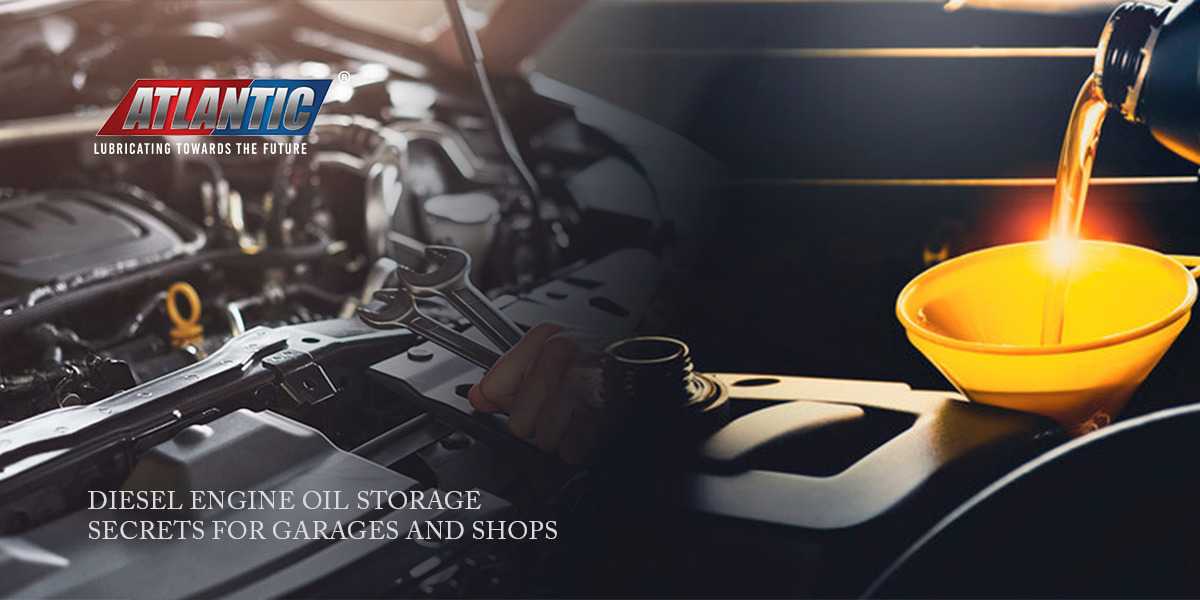Modern engines demand attention. You need to consider the wide array of oil types and grades available. Proper storage and handling are essential to avoid mix-ups and ensure your vehicle runs smoothly. Here are some garage-savvy tips from Atlantic to help you out.
Storage Savvy:
Modern engines mean more oil choices. Master those different types and grades! Proper storage is key to avoid mix-ups and keep your engine happy. For storage, think cool and dry – basements or sheds work great. Hot rooms? That’s bad news for oil. Sunlight is no friend either – keep your oil out of direct light. And remember, safety first! Oil and sparks don’t mix, so store it away from electrical gear and anything hazardous.
Container Check:
When your bulk synthetic diesel engine oil arrives, check it over! Reject anything leaky, dented, or off. Keep oils sealed in their original containers. This prevents contamination and keeps everything pure. A messy space means a messy mind. Use shelves, racks, or bins to organize your oils. You’ll save time and avoid confusion. Label everything clearly – oil type, viscosity, and API category. Don’t mix things up!
Use older oil first. This ensures it doesn’t lose its punch before you need it. Think of it like a first-in, first-out system. Everything gets used at its best, and no oil goes to waste. This gives your customers the best engine performance possible. Everything runs smoothly, just like a well-oiled machine! Plus, you save money in the long run.
Label Like a Pro:
You might think labeling is overkill, but trust me – mark every tank, dispenser, everything! Include the oil’s name, viscosity, and performance level. This little step saves you from big headaches down the road. Do regular stock checks. Toss outdated oils. Newer CK-4 oils often work in older engines – that means you can streamline your inventory and ditch the clutter. Less oil, less confusion, happier customers!
Diesel Engine Fluids Have a Special Case:

Heavy duty diesel engine oil needs the best care. Keep it in the original container at room temp – no freezing, no baking! Remember, DEF has a shelf life (about 18 months). Use the oldest stuff first so you don’t get stuck with expired DEF.
Switching to new oils? Plan ahead and tell your team! A smooth transition means everyone’s in the loop. Before the new oil arrives, clean your bulk tanks. A fresh start is important! And I know I sound like a broken record, but label those dispensers! This little detail saves you from big headaches and mix-ups.
Shop Streamlining:
Label Like Crazy: Seems basic, but mark those tanks, tools, everything! Include the oil’s name, viscosity, and performance level. This saves you major headaches later.
Out with the Old, In with the Versatile: Check your stock regularly. Toss outdated oils! Newer CK-4 oils often work in older engines, so you can ditch the clutter. Less oil means less confusion – and happier customers.
Change is Coming: Switching oils? Plan ahead, tell your team! Smooth transitions need good communication. Before the new stuff arrives, clean those bulk tanks. A fresh start is key!
Labeling – The Golden Rule: I’ll say it again – label those dispensers! This little detail prevents expensive mistakes. Label like your shop’s life depends on it!
Beyond Storage:

Your shop’s foundation is the oil storage system
In order to become an expert in engine care, the first step is to store the oil properly. Teach your technicians to become oil specialists! They will be familiar with the appropriate oils, manage them with care, and impeccably apply them. This prevents you from making costly mistakes and ensures that your engines continue to run smoothly.
Be Prepared for What May Come Your Way!
A messy fact is that spills occur. Drip pans should be placed under dispensers, and absorbent materials should be available. Clean up spills as quickly as possible is healthier for the environment and your sanity.
It Is Important to Maintain
In the same way that your clients’ automobiles require maintenance, your oil storage facility does as well. Make sure to check your storage space, dispensers, and tanks on a regular basis. In the early stages, detect any leaks, corrosion, or worn-out equipment. Fixing those little issues now can save you a lot of difficulties in the future.
Responsibility in Disposal- The Final Step in the Process
Leaving used oil and empty containers in the environment is not something that has to be done. Find recyclers who are permitted to do so or follow the standards that govern appropriate disposal in your area. Please do what you can, and the entire planet will be grateful to you — one contented and well-lubricated engine at a time!
Be A Savvy Oil Expert

Building a Culture of Oil Care: Going Beyond Organizational Structures
Not only do these behaviors promote a culture of oil knowledge, but they also make the shelves more organized from the inside out. Not only does your store function efficiently, but you also contribute to a more environmentally friendly future. Mastering oil storage and handling is about doing activities in a responsible manner that are to everyone’s benefit.
You are the Champion of Oil Handling in your Shop
You will see a transformation in your store if you follow these guidelines. In addition to the fact that those engines will operate without a hitch, your workstation will also be effective and well-organized. There is certainly cause for celebration here!
A Little TLC for Your Oil Equipment
Regular maintenance is required for your oil storage, just like it is for those client autos. Inspect everything, even dispensers, and tanks! In the early stages, detect leaks, corrosion, and worn components. Fixing minor issues today will prevent major issues in the future.
Utilized Oil: Don’t Throw Away the Environment
Containers that have been emptied and utilized oil require careful handling. Investigate the local regulations, locate the approved recyclers, and do your part! Everybody comes out ahead when it comes to responsible disposal.
For more Information: https://atlanticlubes.com

